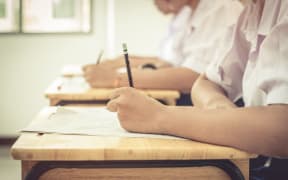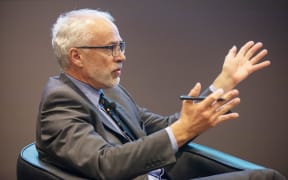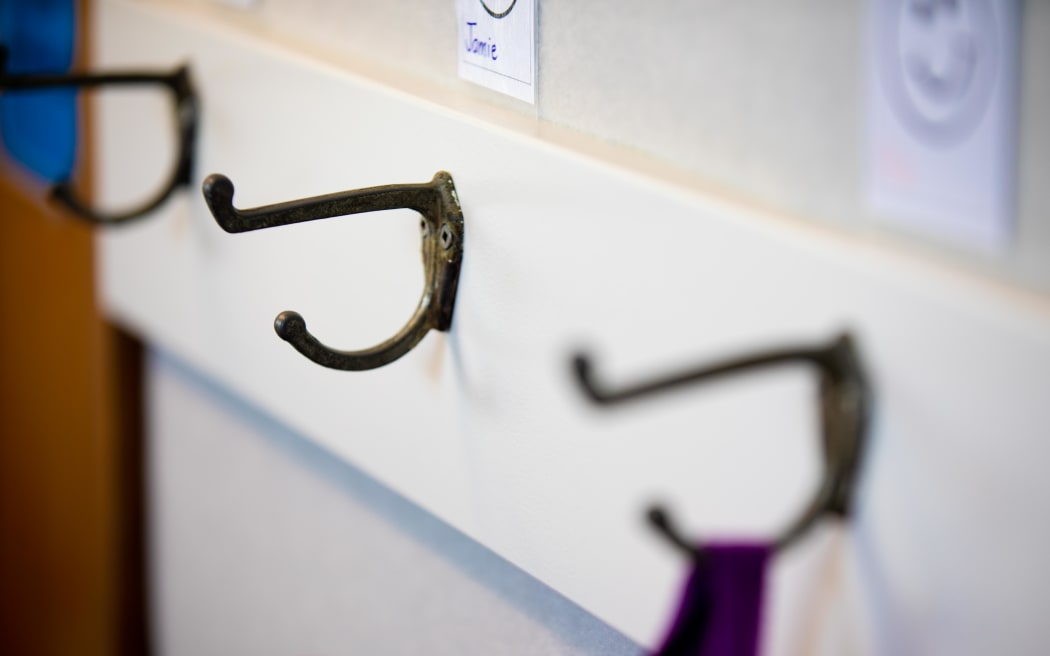
All New Zealand schools spent just under three months in lockdown, while schools in Auckland, Northland and parts of Waikato spent up to an additional 16 weeks. Photo: RNZ / Marika Khabazi
It was more than two years of constant disruption for many students and it has caused lasting impacts to their education.
For those in Auckland it dragged on, with months of closed classrooms and online learning.
Across the ditch education experts are calling mass school closures during the Covid pandemic unnecessary, leading to a surge of social and educational problems.
One expert said in The Sydney Morning Herald there "was a fog of war, and there was ill preparation - in Australia between federal and state governments - for a pandemic" in early 2020, noting it was understandable schools closed in the first months.
Professor Peter Shergold, NSW education standards authority chair, said after evidence emerged that children were less likely to spread the virus, and schools were not transmission hotspots, the system-wide closures were unwarranted.
"The danger of school closures, which we always knew, was that it was going to accentuate disadvantage," the Herald reported.
"After the closures in early 2020, we made the wrong policy decisions about closing school systems."
Shergold said he was particularly concerned about the long-term impact of school closures on 15- to 18-year-olds.
"As for the impacts socially and for their mental health, I am not sure we realised just quite how severe the long-term effects were likely to be. Not just here but all around the world."
Secondary Principals' Association president and Papatoetoe High School principal Vaughan Couillault said New Zealand children were suffering from the consequences of extended school closures.
"I think the learning is that there are ways that we can do stuff that doesn't require the total desocialisation and lockdown of spaces for two years."
He said New Zealand's Covid-19 measures were harder and longer than any other jurisdiction, "but you could argue we had fewer deaths".
The first lockdown was in line with what other jurisdictions did, he said, but other countries came back online a lot faster than New Zealand did.
"It may be that we are paying the price of that."
But Couillault said hindsight made a big difference, and the decisions made were thought to be the best course of action given the uncertainty at the time.
He said a lockdown for a few weeks while everyone got their bearings was understandable, but his view was that mask-wearing protocols worked and schools were not the Covid breeding ground initially feared.
"On the ground at the time there didn't seem to be any evidence of things spreading like wildfire."
And now there are gaps in the learning that were created as a result of the absence of face to face learning.
Couillault said it was the now year 11 students - who had just entered intermediate school when lockdown first hit - that he thought had been impacted the most.
They had gone from familiar learning environments to something different, where nothing was familiar and then school shut after a few weeks in.
"Last year's year 10s were challenging behaviourally."
Next time, we might think: "Do we really want to shut schools down that quickly?"
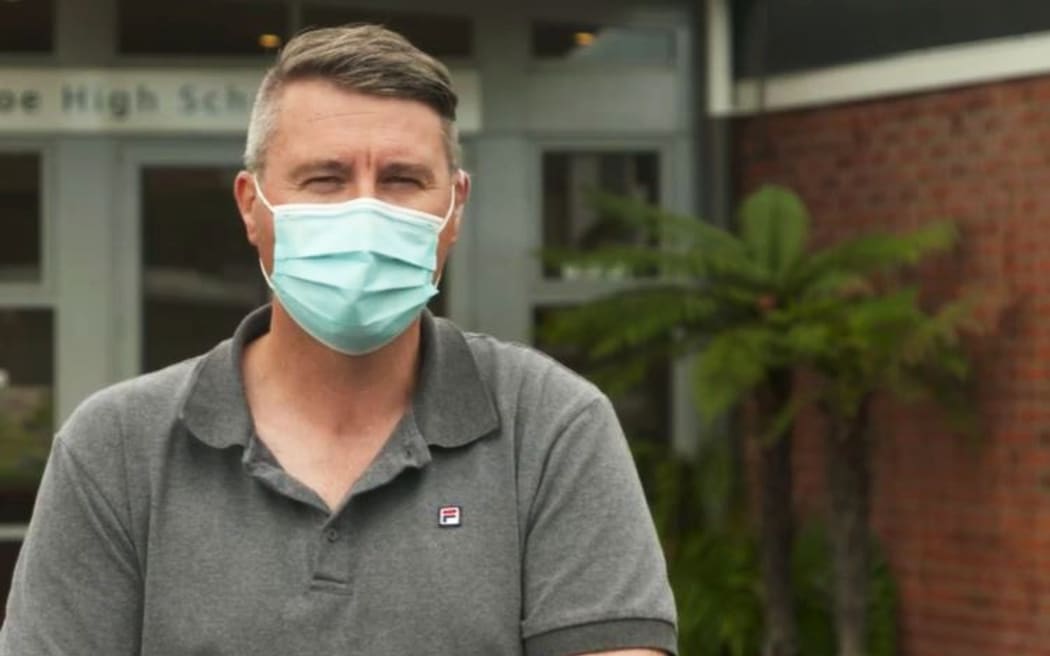
Mask-wearing protocols in schools worked, Vaughan Couillault said. Photo: RNZ
New Zealand Principals' Federation president Leanne Otene said schools closed as per government and Ministry of Health instruction.
"We were required [to close] and generally agreed."
On whether it was the right call, she said any answer would be hypothetical.
She believed Covid-19 had only exacerbated issues already being seen in schools across the country.
There were high levels of anxiety, increased behavioural needs and wellbeing concerns and childrens' communication and language skills were not at the same level as other cohorts, she said.
"Of course that highlighted it."
She said they were seeing different behaviours in 5-year-olds entering school, for example, because of the lack of ability to participate in early childhood and get that early socialisation.
But she said attendance, changes in curriculum and other factors also played into this.
She said teachers had also done an amazing job at mobilising and proving the best online learning as possible
"I'm extremely proud of our workforce," Otene said.
Rotorua paediatrician and University of Auckland School of Medicine lecturer Danny de Lore said, in retrospect, the impact of closing schools could have been underestimated because of the focus on saving lives.
It was unknown what Covid-19 would look like in a month and there was a lot of uncertainty - and the default was to play it safe.
He said it was unfair to retrospectively say any of those decisions were wrong, but to look forward and make sure the systems are more prepared for next time.
While there were definitely things to improve on for next time, de Lore said "you can easily underestimate the impact if there had been more deaths".
That was young people's parents, grandparents and other important people in their lives and that would have a huge impact on their wellbeing.
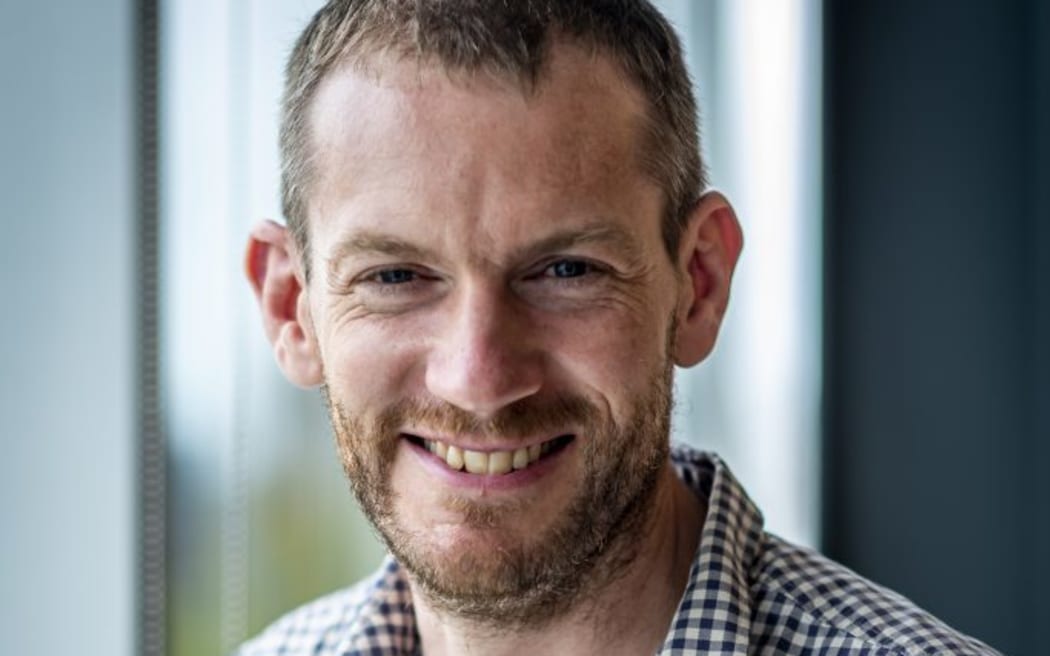
Professor Michael Plank. Photo: Supplied.
Covid-19 modeller and University of Canterbury professor Michael Plank said it was known at the beginning of the pandemic that children were relatively low risk.
But with an elimination strategy, it was important to consider how those children interacted with society as a whole and transmission to adults.
"If you think back to March 2020, with the benefit of hindsight, could we have achieved the results without closing schools with that initial lockdown? I don't know.
"Maybe, with the benefit of hindsight. Maybe not as well."
He said if schools were kept open, that might have resulted in the need for a longer level 4 lockdown, or it might have meant the virus was not eliminated.
And more people could have died - which led to the difficult decision of how many people was it worth letting die to keep children in school?
Plank said that was not to downplay the impact of closing schools, because it was significant, especially for those in Auckland.
"With Auckland, with hindsight, that lockdown did perhaps go on too long. The government itself has acknowledged that."
Ministry of Education leader of operations and integration Sean Teddy said all New Zealand schools spent just under three months in lockdown.
Meanwhile, schools in Auckland, Northland and parts of Waikato spent up to an additional 16 weeks.
Teddy said regular school attendance fell from about 60 per cent in term 2 of 2021, to just 40 per cent in term 2 of 2022, most likely because of Covid‑19-related absences.
"Students and teachers faced disruption, uncertainty and anxiety during the pandemic and had to adapt quickly.
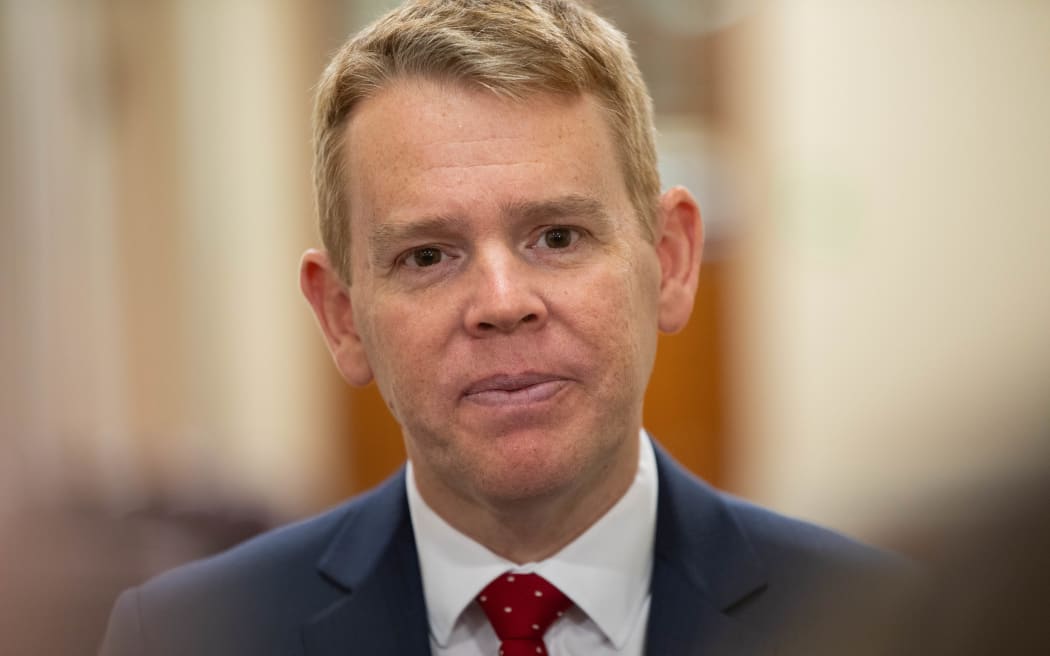
Labour leader Chris Hipkins has previously said Auckland's 2021 lockdown went on too long. Photo: RNZ / Angus Dreaver
"With schools closed for onsite learning, teachers had to change how they taught and students how they learned, moving to online learning.
"We recognise the fantastic efforts of both students and teachers, and the school communities that supported them, to adapt to that challenging new environment."
Labour leader Chris Hipkins previously said he regretted the length of Auckland's 2021 lockdown, saying it went on for too long.
"I think there were probably some areas where we could have moved more quickly to step down some restrictions," he said.
On Q+A with Jack Tame on Sunday he said, "The challenge there is, you don't get the benefit of reconsidering them once they've been done. The reality was when we did a lockdown decision it was because we didn't know what was happening.
"We didn't know how many people would've had the virus and so on. With the benefit of hindsight you can look back and go okay, well we knew exactly who had it and where they had it but that's not information you have at the time."
But National Party Education Minister Erica Stanford said the pandemic was only one factor impacting education.
She said an Education Review Office report found the pandemic had "a lasting and significant impact on education in New Zealand", but that this was only one factor.
"Our international benchmarks and national measurements show student achievement has been declining for a number of years."
The Royal Commission of Inquiry into Lessons Learned from Aotearoa New Zealand's Response to Covid-19 was expected to release its findings later this year.
This story was originally published by Stuff.

